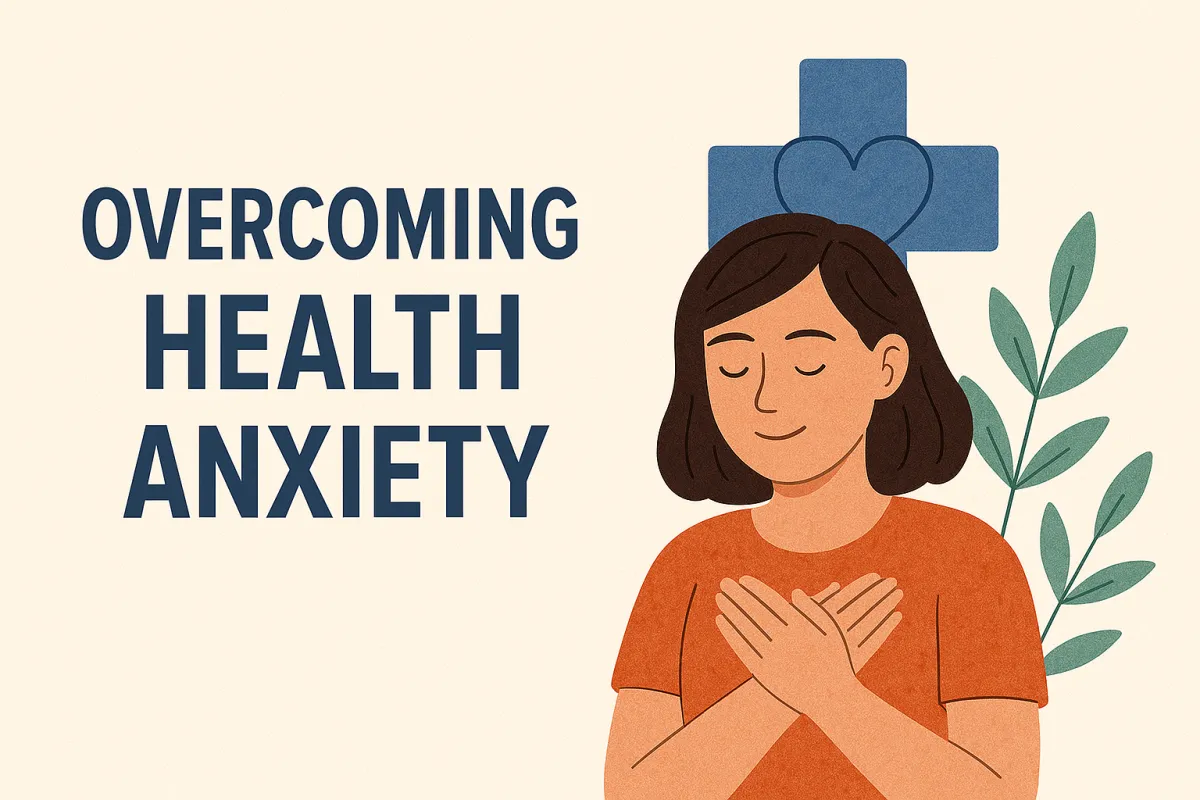
Overcome Health Anxiety
Title: Overcoming Health Anxiety: Effective Strategies for a Calmer Mind
Introduction
Health anxiety, also known as illness anxiety disorder, is a persistent fear of having a serious medical condition despite reassurance from healthcare professionals. This overwhelming worry can disrupt daily life, leading to frequent self-checking, internet searches for symptoms, and heightened distress. Fortunately, there are effective strategies to manage health anxiety and regain control over your thoughts. This guide explores practical techniques, including Psy-TaP (Psycho-Sensory Techniques and Principles), to help ease your concerns and restore peace of mind.
1. Understanding Health Anxiety
Health anxiety stems from a heightened focus on bodily sensations and a tendency to catastrophise minor symptoms. This fear-based cycle is fuelled by excessive checking, seeking reassurance, and avoiding certain situations. It can create a sense of OCD (Obsessive Compulsive Disorder) through ensuring a germ-free environment through intense/excessive cleaning and an avoidance of people or public spaces, which can also create Agoraphobia (fear of open/public spaces).
2. Recognizing the Anxiety Cycle
The anxiety cycle consists of:
Noticing a bodily sensation
Interpreting it as a serious illness
Seeking reassurance or researching symptoms
Experiencing temporary relief, followed by renewed anxiety
Breaking this cycle requires shifting your response to these thoughts.
3. Psy-TaP Techniques for Rapid Anxiety Relief
Psy-TaP offers rapid, effective methods to rewire anxious thought patterns. Techniques such as visual remapping and psycho-sensory interventions help neutralize distressing thoughts and reduce physiological symptoms of anxiety by addressing the root cause.
4. Challenge and Reframe Catastrophic Thoughts
When experiencing health-related worries, ask yourself:
Is there factual evidence supporting my fear?
Have I had similar concerns before that turned out to be unfounded?
What is a more balanced way to view this situation? Replacing irrational fears with logical, reassuring statements weakens anxiety’s grip.
5. Limit Symptom-Checking and Internet Searches
Constant self-examination and researching medical conditions reinforce anxiety. Reduce these habits gradually and set boundaries around online searches to prevent spiraling into fear.
6. Grounding and Mindfulness Techniques
Grounding exercises, such as the 5-4-3-2-1 method, shift focus away from anxious thoughts:
5 things you see
4 things you touch
3 things you hear
2 things you smell
1 thing you taste
Practicing ‘Grounding’ daily promotes present-moment awareness and diminishes intrusive thoughts.
7. Engage in Healthy Distractions
Redirecting focus to enjoyable activities, such as exercise, hobbies, or social interactions, helps break the cycle of persistent worry. Exercise and a healthy life will reduce the risk of ill health.
8. Prioritize Relaxation and Sleep
Anxiety can be heightened by stress and poor sleep. Establishing a relaxing bedtime routine and practicing deep breathing exercises can improve overall well-being.
9. Seek Professional Help When Needed
If health anxiety significantly impacts your daily life, seeking professional support is crucial. Psy-TaP offers rapid relief from anxiety by addressing subconscious triggers and rewiring thought patterns effectively.
Conclusion
Health anxiety can feel overwhelming, but by applying the right techniques, it is possible to regain control. Incorporating Psy-TaP methods into your routine can help reduce anxiety and promote a calmer mindset. If you’re struggling, expert guidance can provide tailored solutions for lasting relief.
For specialized support, visit ImproveMyMindset.com and explore effective anxiety management techniques on the Resources page. Book a free 20 mins Discovery Call with Nick Warburton on Zoom.
